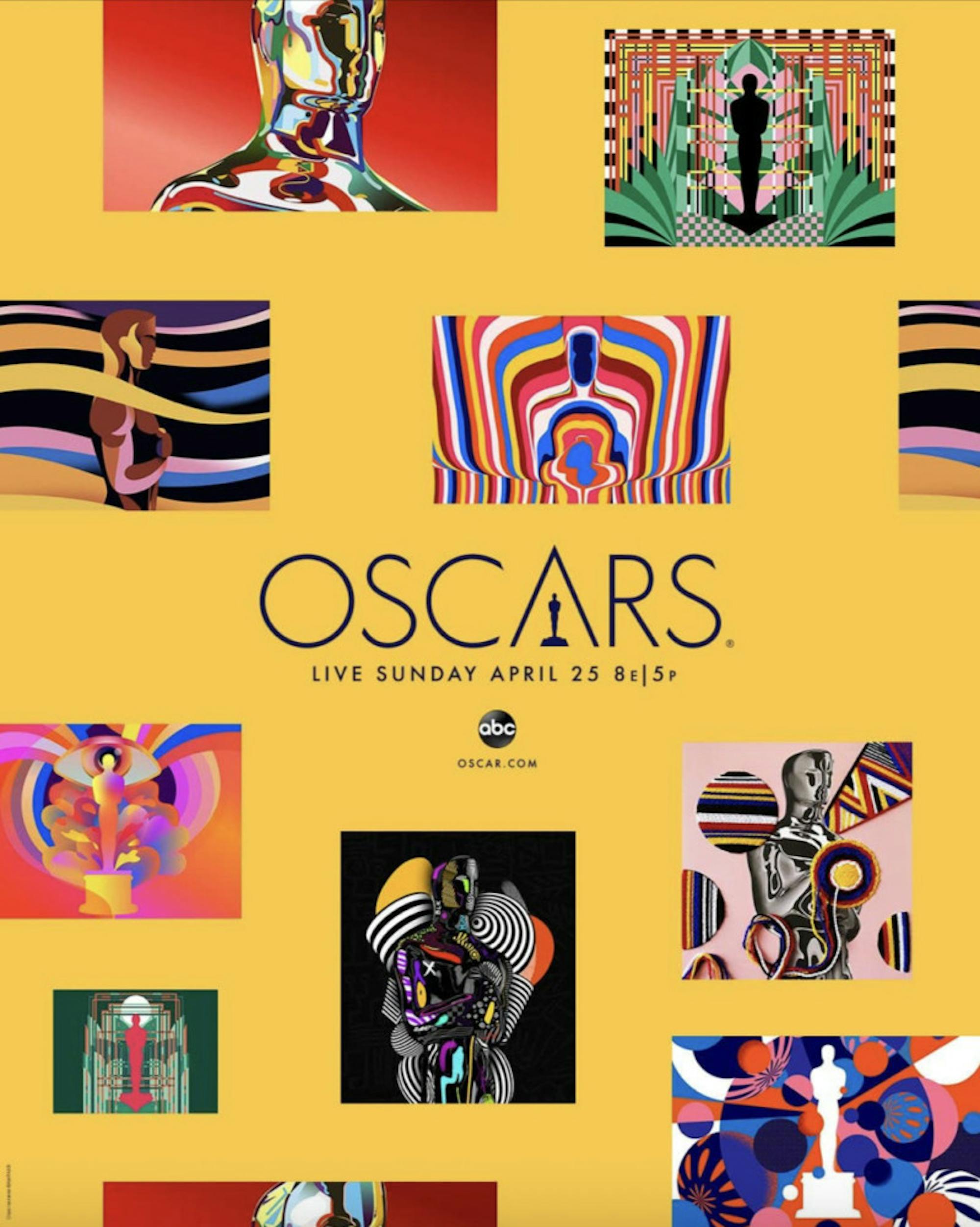“Think of this as a movie set, an Oscars movie with a cast of over 200 nominees,” Regina King said in her opening monologue at the 93rd Academy Awards in an attempt to explain why there was not a mask in sight.
So let’s pretend the Oscars ceremony was a movie; right away, one could tell it wasn’t going to be a good one. King’s monologue concluded with the presentation of the award for best original screenplay to Emerald Fennell, the writer of "Promising Young Woman" (2020). Many media outlets had predicted the win. Though the screenplay is a good one, it lacks the layered brilliance of past winners, such as "Parasite" (2019), and even fellow contenders, such as "Minari" (2020).
Not all of the winners were disappointing, however, with actresses Frances McDormand and Youn Yuh-jung taking home well-deserved awards for best actress in a leading role and best actress in a supporting role, respectively, and Daniel Kaluuya earning the award for best actor in a supporting role for his portrayal of Fred Hampton in "Judas and the Black Messiah" (2021).
"Mank" (2020), which entered the Oscars with 10 nominations, the most of any film, left with only two wins — those for best cinematography and best production design. Although both of these awards feel right for "Mank," it is actually more surprising that the film secured 10 nominations than the fact that it won so few awards. "Mank" simply had no chance at securing best picture, and it seemed like Gary Oldman and Amanda Seyfried, who were nominated for best actor and best supporting actress, only received the nominations because the lack of strong films released in 2020 led to no other reasonable options for the categories.
Temporarily moving away from the nominees and winners of each category, it would not be the Oscars without the speeches marked by passionate responses to the U.S.’s social and political climate, as well as the powerful personal anecdotes.
Will McCormack and Michael Govier, the creators of the best animated short film winner, "If Anything Happens I Love You" (2020), a film about a school shooting and a victim’s family dealing with loss, reflected on the topic of the film in their acceptance speech. They demanded that the people of the United States do better to protect communities from gun violence. Travon Free and Martin Desmond Roe’s acceptance speech for the best live action short film winner, "Two Distant Strangers" (2020), similarly reflected the topic of their film. The speech centered on police brutality toward Black Americans.
“Today, the police will kill three people … because on average the police in America every day kill three people … and those people happen to disproportionately be Black people,” they said.
Thomas Vinterberg, whose film "Another Round" (2020) won for best international feature film, began with a personal anecdote about his childhood dream of giving an Oscars acceptance speech. The speech soon took a more emotional turn, telling the story of how four days into shooting the film, his daughter was killed in a car accident. Vinterberg continued on to pronounce his love for his daughter and dedicate the film to her, in between deep breaths to stop his tears.
Contrasting the expansive length of some acceptance speeches were both of Frances McDormand’s moments with the microphone. The first, which came when "Nomadland" (2020), which McDormand starred in, won best picture, was a mere two sentences, which concluded with, “We give this one to our wolf,” followed by a series of odd howls. McDormand’s next speech was for her Oscar for best actress in a leading role, which began with her wish for a karaoke bar at the awards ceremony, and then immediately, without introduction, went into a strangely metaphorical poem comparing her work to a sword. Thankfully, McDormand’s performance in "Nomadland" was strong enough to balance out the bit of absurdity present in her appearances at the Oscars.
Any great film needs a good ending, and this was the 93rd Oscars’ greatest downfall. In a typical year, the ceremony ends with the climactic award for best picture. This year, however, the order was switched, with best picture being presented third to last, followed by best actress and then best actor.The clear suspense that was built up for the best actor category led to much speculation that the night would end in the powerful and emotional announcement that the late Chadwick Boseman had won for his exceptional performance in "Ma Rainey’s Black Bottom" (2020). So it was no surprise that the real winner was quite a letdown. When Anthony Hopkins was presented with the award instead, the buzzing dissatisfaction was not so much because he did a poor job with his role in "The Father" (2020). In fact, Hopkins gave a wonderful performance. The disappointment was one part because Boseman was the favorite, and another because Hopkins was not even present — in real life or virtually — to accept his award. Thus, the could-have-been great ending to an unusual Oscars was a letdown, just like most of 2020 in film.






